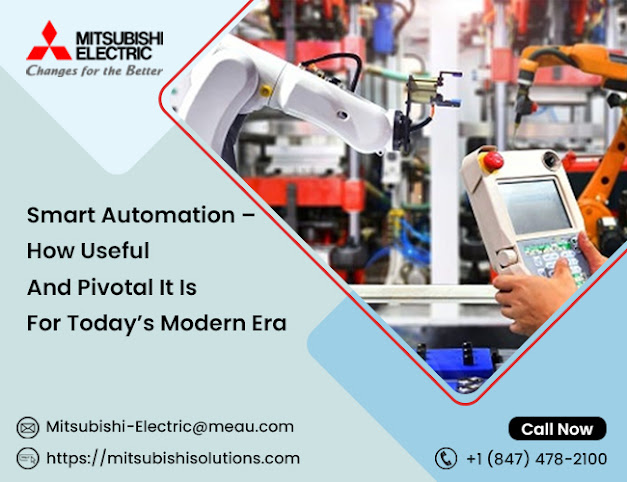Reducing Packaging Waste: Sustainability Through Automation
In today's society, sustainability is not just a trendy buzzword but rather a necessity. It is more important than ever to eliminate packaging waste as environmental worries intensify. Fortunately, automation is becoming a potent remedy. Businesses are streamlining their operations and drastically decreasing packaging waste thanks to cutting-edge technologies like automated pallet stackers, automated packaging lines, and warehouse conveyor systems. We'll look at how automation is transforming packaging processes for sustainability in this blog post.
The Packaging Waste Challenge
Waste generated by packaging has always been a problem. Excessive packing not only creates trash that is not essential, but it also uses up valuable natural resources. Businesses from several industries have struggled with this conundrum. The answer? Accept automation.
A Growing Problem
With the continued growth of e-commerce and online shopping, a record quantity of packaging trash is being produced. The environmental cost of plastic wraps and cardboard boxes is significant. Automation is stepping in to solve this problem quickly.
Automation: A Sustainable Approach
Automation isn't just about efficiency; it's about sustainability. By integrating technology into the packaging process, businesses can significantly reduce their environmental footprint. Let's delve into the key ways automation is making a difference.
Efficient Use Of Materials
One of the primary contributors to packaging waste is the overuse of materials. Traditional, manual packaging processes often lead to excessive use of cardboard, bubble wrap, and other packaging materials. In contrast, automated packaging lines ensure that materials are used efficiently, resulting in less waste.
Precise Measurements
Automated systems are designed to measure and cut materials with precision. This means no more oversized boxes for small items or excessive padding to fill empty spaces. The result is packaging that perfectly fits the product, reducing material usage and waste.
Streamlined Operations
Automation brings a level of precision and speed that is challenging to achieve with manual labor. With automated conveyor systems for warehouses, products move seamlessly through the packaging process. This not only reduces the need for excessive handling but also ensures that the correct items are packed correctly the first time, minimizing the chances of errors that could lead to additional waste.
Sustainable Packaging Materials
The adoption of environmentally friendly packing materials is also promoted by automation. Businesses are switching to materials that are readily recyclable or biodegradable because of a focus on sustainability. These materials can be utilized by automated systems with ease, supporting more general environmental objectives.
Automated Pallet Stackers: Efficiency And Sustainability Combined
Automated pallet stackers are essential for streamlining warehouse operations and minimizing packing waste. These devices are made to efficiently handle, stack, and arrange products, which has a noticeable effect on the sustainability of packing.
Space Optimization
Automated pallet stackers are engineered to stack products with precision, maximizing the use of available space. This minimizes the need for additional storage areas or warehouses, reducing the environmental impact of construction and land use.
Reduced Packaging
Products can be stacked higher and more neatly when stacking is efficient. Further reducing waste, this lessens the need for superfluous packaging materials and lowers the likelihood of damage occurring during storage or transportation.
Lower Energy Consumption
Modern automated pallet stackers are designed to be energy-efficient. They use advanced technologies to operate smoothly while consuming minimal energy. This lowers energy consumption's carbon footprint in addition to lowering operational costs.
The Role Of Data In Sustainability
Automation is not just about the physical processes; it's also about data. Automated systems generate valuable data that can be used to make sustainable decisions.
Data-Driven Insights
Automation provides insights into packaging processes and materials used. Analysis of this data can reveal areas that need improvement. Businesses may choose the best packaging options by doing their research and maximizing the packaging process' effectiveness and sustainability.
Inventory Management
Automated systems can offer real-time inventory management, reducing the likelihood of overstocking or understocking. This, in turn, minimizes the need for excess packaging materials or rush orders that can lead to packaging waste.
Automation Drives Sustainability
As we navigate a world with increasing environmental concerns, the role of automation in reducing packaging waste cannot be understated. From automated conveyor systems for warehouses to automated pallet stackers efficiency, automation is revolutionizing the way businesses approach sustainability in packaging.
Businesses that embrace automation not only benefit from streamlined operations and increased efficiency but also make a significant contribution to reducing packaging waste. Sustainability and automation go hand in hand, showing that it's possible to achieve environmental goals while maintaining operational excellence.
In a world where sustainability is no longer an option but a necessity, automation is a beacon of hope. It's a path that businesses are taking to not only thrive in a competitive landscape but also to be responsible stewards of the environment. Automation is the key to reducing packaging waste and creating a more sustainable future.
Relevant Blog
The Evolution Of Smart Sensors: Enhancing Automation Precision
Going Green With VFD Pump Controllers: Eco-Friendly Solutions In Manufacturing



Comments
Post a Comment